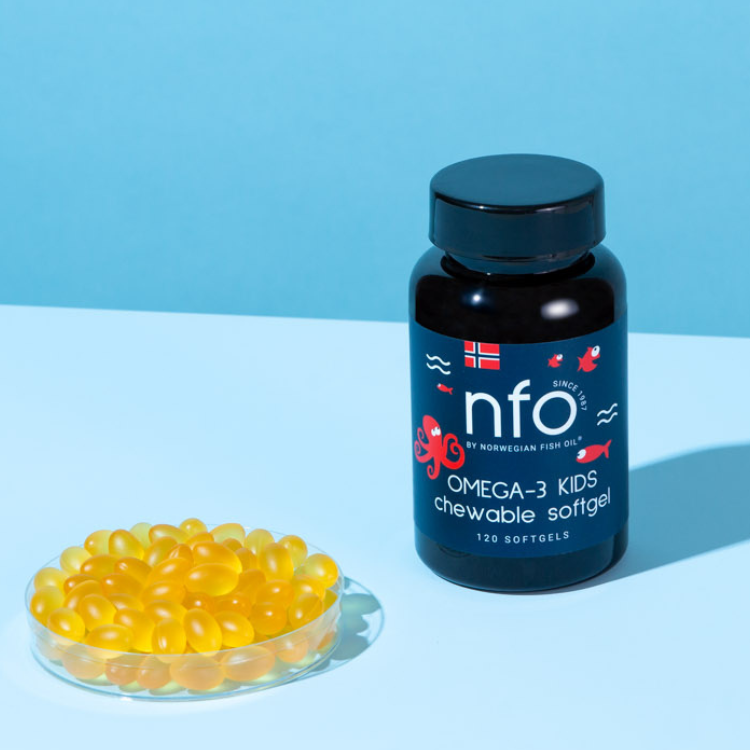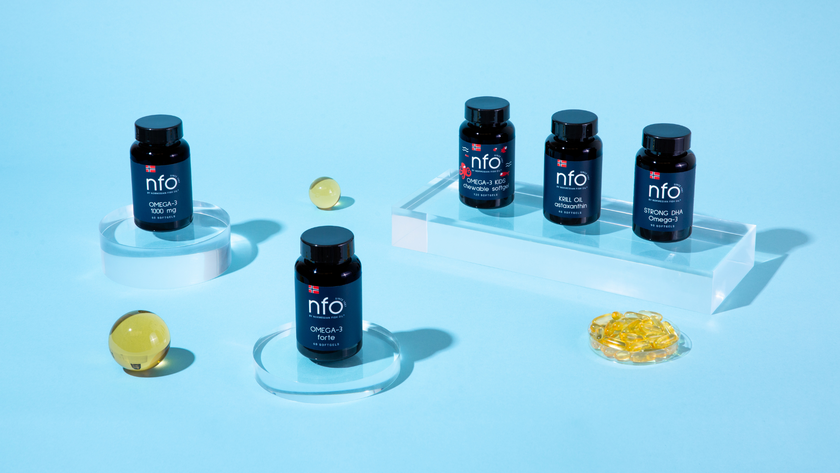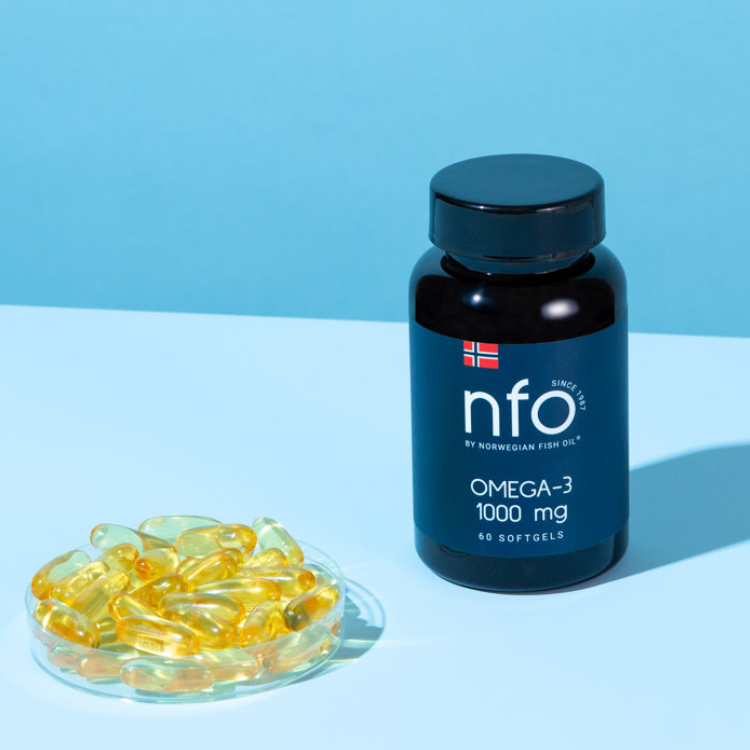1. أحماض أوميغا 3 الدهنية
ملخص:
أحماض أوميغا 3 الدهنية، الموجودة بشكل رئيسي في زيت السمك، ضرورية لصحة الدماغ والوظائف الإدراكية. حمض الدوكوساهيكسانويك (DHA)، وهو نوع من أوميغا 3، يُعدّ مكونًا أساسيًا في الأغشية العصبية.
آلية العمل:
تدعم أحماض أوميجا 3 وظائف المخ من خلال الحفاظ على سيولة الغشاء، وتقليل الالتهاب، وتعزيز اللدونة المشبكية (كار وآخرون، 2011).
شهادة:
- وجدت تجربة عشوائية محكومة أن مكملات أوميغا 3 تعمل على تحسين الذاكرة والمزاج لدى البالغين الأصحاء (ستونهوس وآخرون، 2013).
- وقد ارتبطت مكملات DHA بنتائج معرفية أفضل لدى الأطفال وكبار السن (Yurko-Mauro et al.، 2010).
مرجع هارفارد: كار، جيه إي، وآخرون (2011). أحماض أوميغا 3 الدهنية المتعددة غير المشبعة والضعف الإدراكي: مراجعة للدراسات السريرية وما قبل السريرية. نشرة أبحاث الدماغ ، 85(1-2)، ص. 1-9.
2. باكوبا مونيري
ملخص:
باكوبا مونيري، المعروف أيضًا باسم براهمي، عشبة تُستخدم تقليديًا في الطب الأيورفيدي لتحسين الوظائف الإدراكية. وقد أثبتت الدراسات الحديثة قدرتها على تحسين الذاكرة والتركيز والتعلم.
آلية العمل:
يحتوي الباكوبا على مركبات فعالة تُسمى الباكوسيدات، والتي يُعتقد أنها تُعزز التواصل المشبكي وتُقلل الإجهاد التأكسدي في الدماغ. تشير الأبحاث إلى أن هذه المركبات تدعم نمو الخلايا الشجيرية، وهو أمر بالغ الأهمية للذاكرة والإدراك (Stough et al., 2008).
شهادة:
- أظهرت دراسة استمرت 12 أسبوعًا أن الباكوبا يحسن بشكل كبير من الاحتفاظ بالذاكرة لدى البالغين الأصحاء (Stough et al.، 2001).
- توصلت تجربة أخرى إلى أن الباكوبا يعمل على تقليل التعب الإدراكي ويعزز معالجة المعلومات (كالابريس وآخرون، 2008).
مرجع هارفارد: ستاف، سي، وآخرون (2001). التأثيرات المزمنة لمستخلص باكوبا مونيرا (براهمي) على الوظيفة الإدراكية لدى البشر الأصحاء. علم الأدوية النفسية ، 156(4)، ص. 481-484.
3. الروديولا الوردية
ملخص:
تُعرف الروديولا الوردية باسم "المُكيف"، وهي علاج طبيعي للتوتر والإرهاق الذهني. وتمتد فوائدها إلى تحسين المزاج وتعزيز المرونة الإدراكية.
آلية العمل:
تعمل عشبة الروديولا عن طريق تعديل محور تحت المهاد - الغدة النخامية - الغدة الكظرية (HPA) والتأثير على مستويات الناقلات العصبية مثل السيروتونين والدوبامين (Darbinyan et al.، 2000).
شهادة:
- أظهرت الدراسات أن نبات الروديولا يعمل على تحسين التعب العقلي وأداء العمل تحت الضغط (Shevtsov et al., 2003).
- وخلصت مراجعة منهجية إلى أن الروديولا يعزز الأداء البدني والعقلي (بانوسيان وآخرون، 2010).
مرجع هارفارد: داربينيان، ف. وآخرون (2000). الروديولا الوردية في حالات التعب الناتج عن الإجهاد - دراسة متقاطعة مزدوجة التعمية لمستخلص موحد SHR-5 مع نظام جرعات منخفضة متكررة على الأداء العقلي للأطباء الأصحاء أثناء العمل الليلي. الطب النباتي ، 7(5)، ص. 365-371.
4. إل-ثيانين
ملخص:
ل-ثيانين، حمض أميني موجود بشكل رئيسي في أوراق الشاي، يُعرف بتأثيره المهدئ دون أي تخدير. يتناغم جيدًا مع الكافيين لتحسين التركيز واليقظة.
آلية العمل:
يعمل L-Theanine على تعزيز الاسترخاء عن طريق زيادة نشاط موجات ألفا في الدماغ وتعديل الناقلات العصبية مثل GABA والسيروتونين والدوبامين (Kimura et al., 2007).
شهادة:
- توصلت إحدى الدراسات إلى أن الجمع بين L-Theanine والكافيين يعمل على تحسين وقت رد الفعل والذاكرة العاملة والانتباه (Owen et al., 2008).
- لقد ثبت أن L-Theanine وحده يعمل على تقليل التوتر وتعزيز الاسترخاء لدى البالغين الأصحاء (Nathan et al., 2006).
مرجع هارفارد: كيمورا، ك. وآخرون (2007). يُقلل إل-ثيانين من الاستجابات النفسية والفسيولوجية للتوتر. علم النفس البيولوجي ، 74(1)، ص. 39-45.
5. الجنكة بيلوبا
ملخص:
تعتبر شجرة الجينكو بيلوبا واحدة من أقدم أنواع الأشجار على وجه الأرض، وهي مشهورة بقدرتها على تحسين الذاكرة والوظائف الإدراكية.
آلية العمل:
تعمل المركبات النشطة الموجودة في الجينكو، بما في ذلك الفلافونويدات والتيربينويدات، على تعزيز تدفق الدم إلى المخ وتمتلك خصائص مضادة للأكسدة، مما يقلل من الالتهاب العصبي (سميث ولو، 2004).
شهادة:
- كشفت دراسة تحليلية أن مكملات الجنكة تعمل على تحسين الوظيفة الإدراكية لدى الأفراد الذين يعانون من ضعف إدراكي خفيف (يانغ وآخرون، 2011).
- وقد ارتبط الاستخدام طويل الأمد بتعزيز الذاكرة العاملة والوظيفة التنفيذية لدى كبار السن (Weinmann et al.، 2010).
مرجع هارفارد: يانغ، ج. وآخرون (2011). فعالية وسلامة مستخلص الجنكة بيلوبا لعلاج الخرف: مراجعة منهجية وتحليل تلوي. مجلة مرض الزهايمر ، 26(1)، ص. 43-56.
خاتمة
تُقدم المُنْشِئات الذهنية، مثل باكوبا مونيري، والروديولا الوردية، وإل-ثيانين، والجنكة بيلوبا، وأحماض أوميغا 3 الدهنية، فرصًا واعدة لتعزيز القدرات الإدراكية. ورغم أن هذه المُكمِّلات الغذائية تحظى بدعمٍ علميٍّ كبير، إلا أنه من الضروري توخي الحذر عند استخدامها. ومن الضروري استشارة أخصائي رعاية صحية قبل البدء بأي نظامٍ غذائي، خاصةً للأفراد الذين يعانون من حالاتٍ صحيةٍ سابقة أو الذين يتناولون أدويةً.
من خلال دمج هذه المواد الطبيعية المحفزة للذاكرة في روتينك اليومي، يمكنك اتخاذ خطوة نحو تحسين أدائك العقلي ورفاهتك العامة.
مراجع
- داربينيان، ف. وآخرون (2000). الروديولا الوردية في حالات التعب الناتج عن الإجهاد - دراسة متقاطعة مزدوجة التعمية لمستخلص موحد SHR-5 مع نظام جرعات منخفضة متكررة على الأداء العقلي للأطباء الأصحاء أثناء العمل الليلي. الطب النباتي ، 7(5)، ص. 365-371.
- كيمورا، ك. وآخرون (2007). يُخفِّف إل-ثيانين الاستجابات النفسية والفسيولوجية للتوتر. علم النفس البيولوجي ، 74(1)، ص. 39-45.
- كار، جي إي، وآخرون (2011). أحماض أوميغا 3 الدهنية المتعددة غير المشبعة والضعف الإدراكي: مراجعة للدراسات السريرية وما قبل السريرية. نشرة أبحاث الدماغ ، 85(1-2)، ص. 1-9.
- ستاف، سي، وآخرون (2001). التأثيرات المزمنة لمستخلص باكوبا مونيرا (براهمي) على الوظيفة الإدراكية لدى الأشخاص الأصحاء. علم الأدوية النفسية ، 156(4)، ص. 481-484.
- يانغ، ج. وآخرون (2011). فعالية وسلامة مستخلص الجنكة بيلوبا لعلاج الخرف: مراجعة منهجية وتحليل تلوي. مجلة مرض الزهايمر ، 26(1)، ص. 43-56.
- يوركو-ماورو، ك. وآخرون (2010). التأثيرات المفيدة لحمض الدوكوساهيكسانويك على الإدراك في حالات التدهور المعرفي المرتبط بالعمر. مجلة الزهايمر والخرف ، 6(6)، ص. 456-464.









